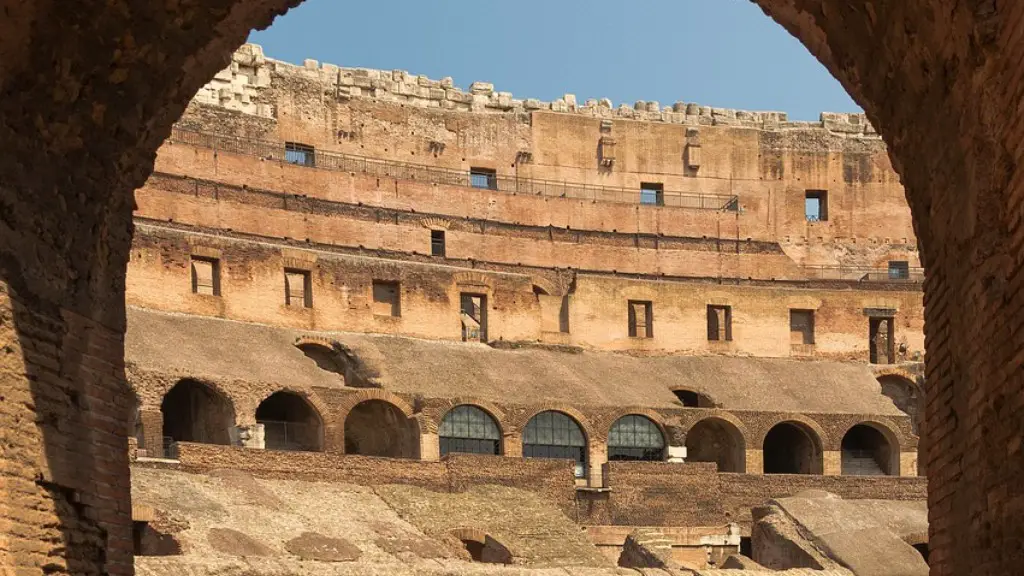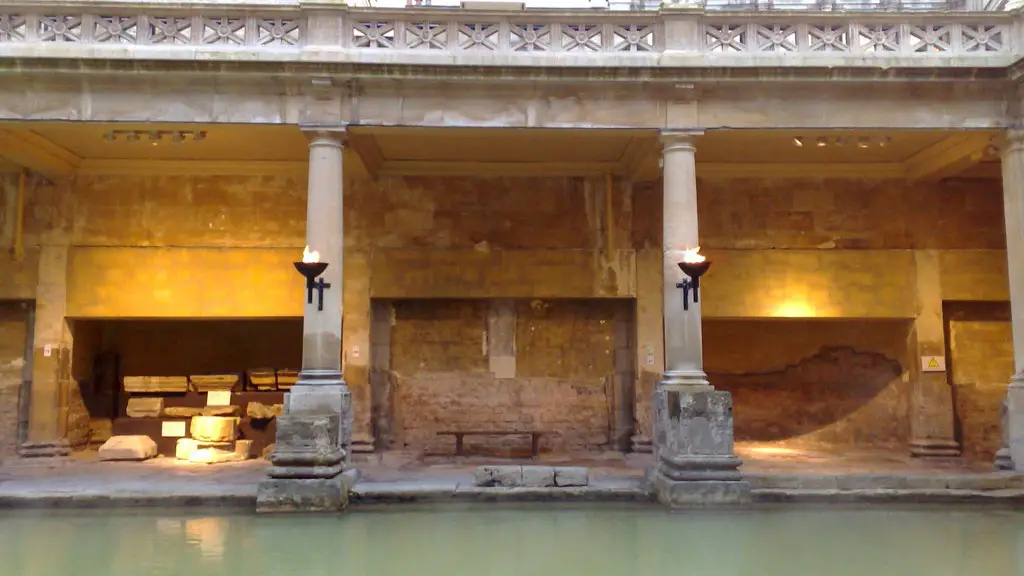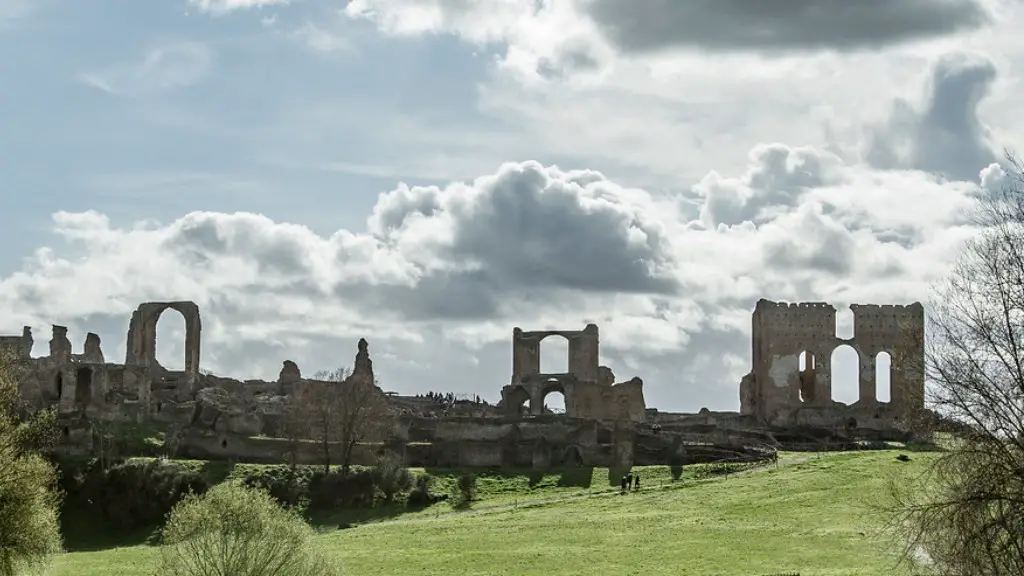Women’s Role in Ancient Roman Society
Women in ancient Rome had a unique place in society, different from the other societies of the time. Unlike many other civilizations, Roman women had legal status, the right to own property and their own money, and the ability to make their own decisions in some matters. Although there were no female magistrates, Roman women of all classes had much more rights than women in many other ancient cultures.
Women in ancient Rome were expected to take care of their families and household duties, as well as perform religious duties associated with the household. Women’s roles in the public sphere were limited and taken up almost exclusively by higher-class women. Women were mostly tasked with conducting religious ceremonies, weaving, and taking care of the home and children.
Although the majority of women served in the home, there were a few opportunities for women to work outside the home. Elite Roman women could take positions as priestesses and dedicae, or women who tended to temples and tombs. Women of lower social classes were limited to certain professions, depending on the status of their husbands and fathers. They might work as bakers, midwives, tailors, or even perfumers.
Women in ancient Rome also had a role in politics, if only to a limited degree. Women could not hold any public positions, but that did not stop them from influencing their male relatives’ political decisions. Some elite women, such as Livia Drusilla and Agrippina, were powerful and influential figures in Roman politics.
The role of women in ancient Rome was important and influential, but at the same time restricted. While some women had the opportunity to become priestesses and powerful political figures, the majority of women in Rome were limited to taking care of the home and their families. However, they still had legal rights, which was not the case in many other ancient societies.
Women in Legal Matters
Women in ancient Rome had much greater rights than women of other societies during the same time period. In particular, they had a great deal of legal authority, although this was restricted to certain classes. Generally speaking, women in ancient Rome had the right to own their own property and handle legal matters.
Higher-class women in Rome often managed the family business and had civil rights similar to those of men. They were allowed to make contracts and sue and be sued in court. Women could also choose whom to marry and even divorce. Lower-class women were not as privileged in legal matters. They had limited rights and were mostly restricted to running the household.
The situation for women in legal matters changed over time. During the early Republic, women were allowed to hold property and manage the family finances. However, in the late Republic, women’s rights were slowly curtailed until Emperor Augustus passed the Julian Laws in 18 BC, which greatly curtailed women’s legal rights.
By the first century AD, women in Rome were back to having legal rights similar to those during the early Republic. They could still divorce, own property, sue and be sued in court, and handle the family’s finances. Legal rights for women in ancient Rome depended largely on a woman’s class, with those of higher classes enjoying a greater degree of autonomy.
Women in Religious Matters
Women in ancient Rome played a large role in religious affairs. They had the right to serve as priestesses and dedicate temples, tombs, and other religious sites. Women could be powerful religious figures, such as the Vestal Virgins, who were the priestesses for the goddess Vesta. These priestesses had tremendous authority and enjoyed a great deal of respect from the people of Rome.
Women were also allowed to take part in religious ceremonies. This included the worship of a variety of gods and goddesses, as well as the worship of household gods, such as the Lares and Penates. Women were also responsible for performing religious rituals, such as the feast of the Matronalia, which was held to honor Juno and was attended by women of all classes.
In addition to religious duties, Roman women also had a role to play in political and military matters. Women were allowed to make offerings to the gods on behalf of their husbands and male relatives before military campaigns. Women could also make sacrifices to the gods, such as white bulls to Mars andwhite doves to Juno.
The role of women in religious matters was an important one in ancient Rome. Women could serve as priestesses, dedicate religious sites, and make offerings and sacrifices to the gods for their husbands and male relatives. Women’s roles in religious matters gave them opportunities to obtain prestige and influence in Roman society.
Women and Public Life
While some women in ancient Rome had a great deal of influence and prestige, most Roman women were excluded from any sort of public life. Lower-class women were limited to managing the household and taking care of the family, while elite women could take part in religious ceremonies and take up positions as priestesses.
Apart from a handful of influential women, most women in ancient Rome were excluded from politics and military matters. Women were not allowed to hold any political positions or take part in debates, although they could still influence politics through their male relatives.
Like many other civilizations of the time, women in ancient Rome were restricted to certain roles and were not allowed to take part in public life. While some elite women, such as Livia and Agrippina, had a great deal of influence and were powerful political figures, the vast majority of women were limited to managing the household and taking care of the family.
Women and Education
Women in ancient Rome were not allowed to take part in any sort of formal education and were excluded from schools and universities. The only form of education available to women was the informal education they received at home, in which mothers taught their daughters household duties and the responsibilities of being a Roman woman.
Though women could not attend school, there were still opportunities for them to gain knowledge. Elite women, such as Livia, were well-educated and knowledgeable in a variety of fields. They took part in philosophical debates, composed works of literature, and even practiced medicine.
Women of lower classes were limited in the scope of their education and their knowledge. Since they were expected to take care of the home and the family, their education was limited to the knowledge needed for them to fulfill these duties.
Women in ancient Rome were limited in the scope of their education, as they were excluded from any formal education. However, some women were still able to gain knowledge and develop skills, either through informal education or through the example of their more powerful female relatives.
Women and Work
Women in ancient Rome did not generally take part in any sort of paid labor and were instead expected to run the household and take care of the family. Lower-class women did sometimes have to work, such as bakers or midwives, if their husbands or fathers were not able to provide them with a livelihood.
Elite women could take part in certain professions, such as doctors and poets. While few women had the opportunity to do so, some wealthy women did work in banks and helped finance large construction projects. Women also worked as weavers and embroideresses, creating luxury items for their families.
While some women in ancient Rome were able to work outside the home, most women were limited to the domestic sphere. This was in contrast to other civilizations of the time, such as Greece, where women were allowed to take part in politics and take up professions.
Women in ancient Rome had limited opportunities to take part in paid labor and were generally expected to take care of the household and their families. Elite women did have opportunities to work in certain professions, and some wealthy women were able to finance large projects. However, for the most part, women were confined to the domestic sphere.





